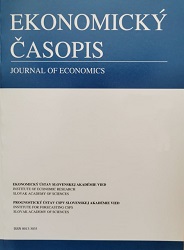Do Active Labor Market Policies Increase the Subjective Well-being of the Unemployed? Evidence from OECD Countries
Do Active Labor Market Policies Increase the Subjective Well-being of the Unemployed? Evidence from OECD Countries
Author(s): Marwa Sahnoun, Chokri AbdennadherSubject(s): Supranational / Global Economy, Labor relations, Economic development
Published by: Ekonomický ústav SAV a Prognostický ústav SAV
Keywords: Active Labor Market Policies; subjective well-being; types of ALMPs; OECD countries;
Summary/Abstract: The employment policies, whether preventive (Active) or curative (Passive), arouse the interest of policy makers in the OECD countries. These policies are mainly concerned with the economy of labor market, but they are not detachable from the reference to the health economy in its social and psychological dimension. Using different estimates (OLS, FE, GMM system), we found evidence that Active Labor Market Policies (ALMPs) have the strongest impact on the subjective well-being of the unemployed. Examination of the different types of ALMP reveals heterogeneity; programs of incentive employment, start-up incentives and training have been most effective in improving the well-being of the unemployed compared to those of direct job creation and supported employment and rehabilitation. Then, we propose some policy recommendations by emphasizing the disposition of the subjective well-being approach in the design, implementation and evaluation of ALMPs.
Journal: Ekonomický časopis
- Issue Year: 69/2021
- Issue No: 05
- Page Range: 447-471
- Page Count: 25
- Language: English

